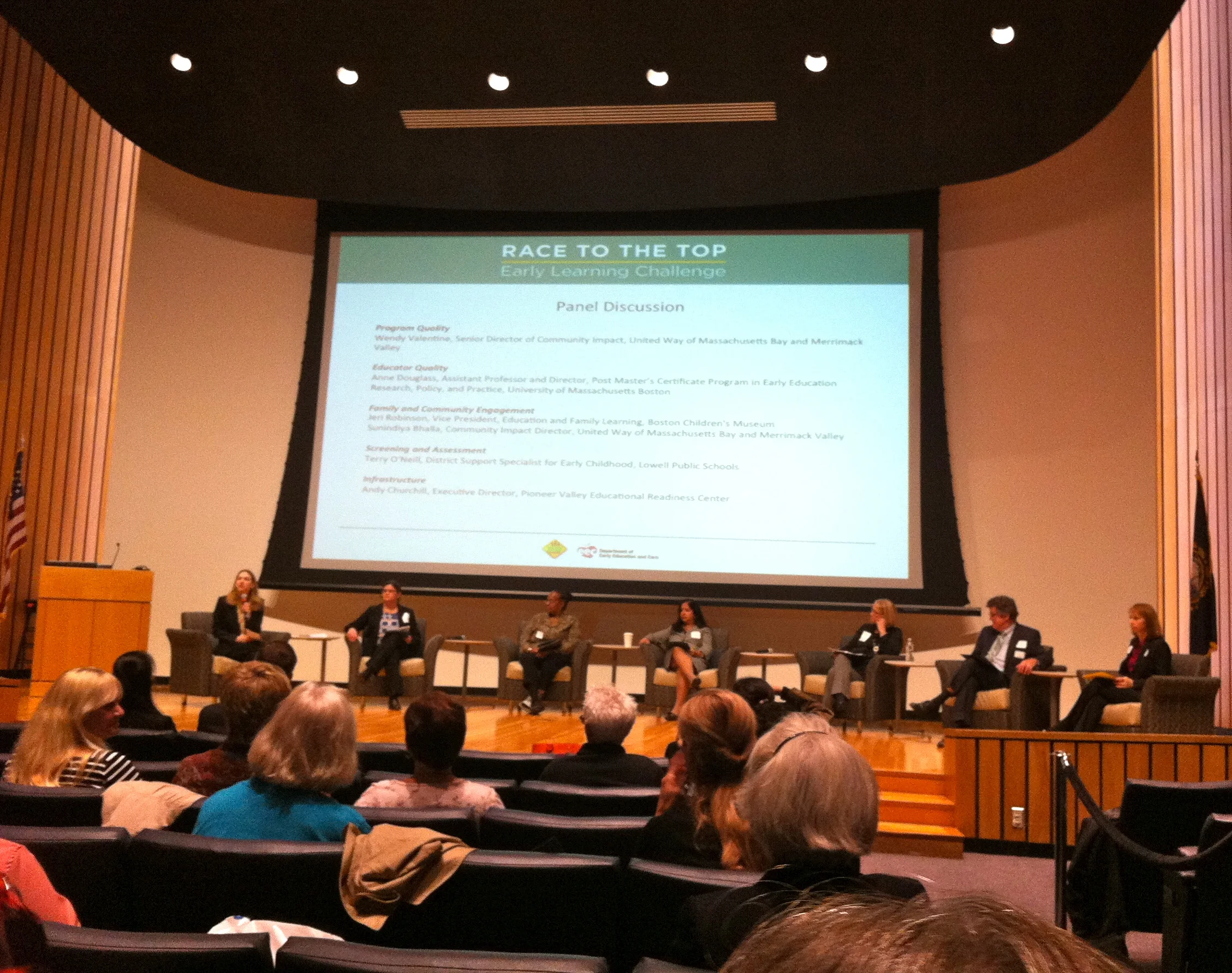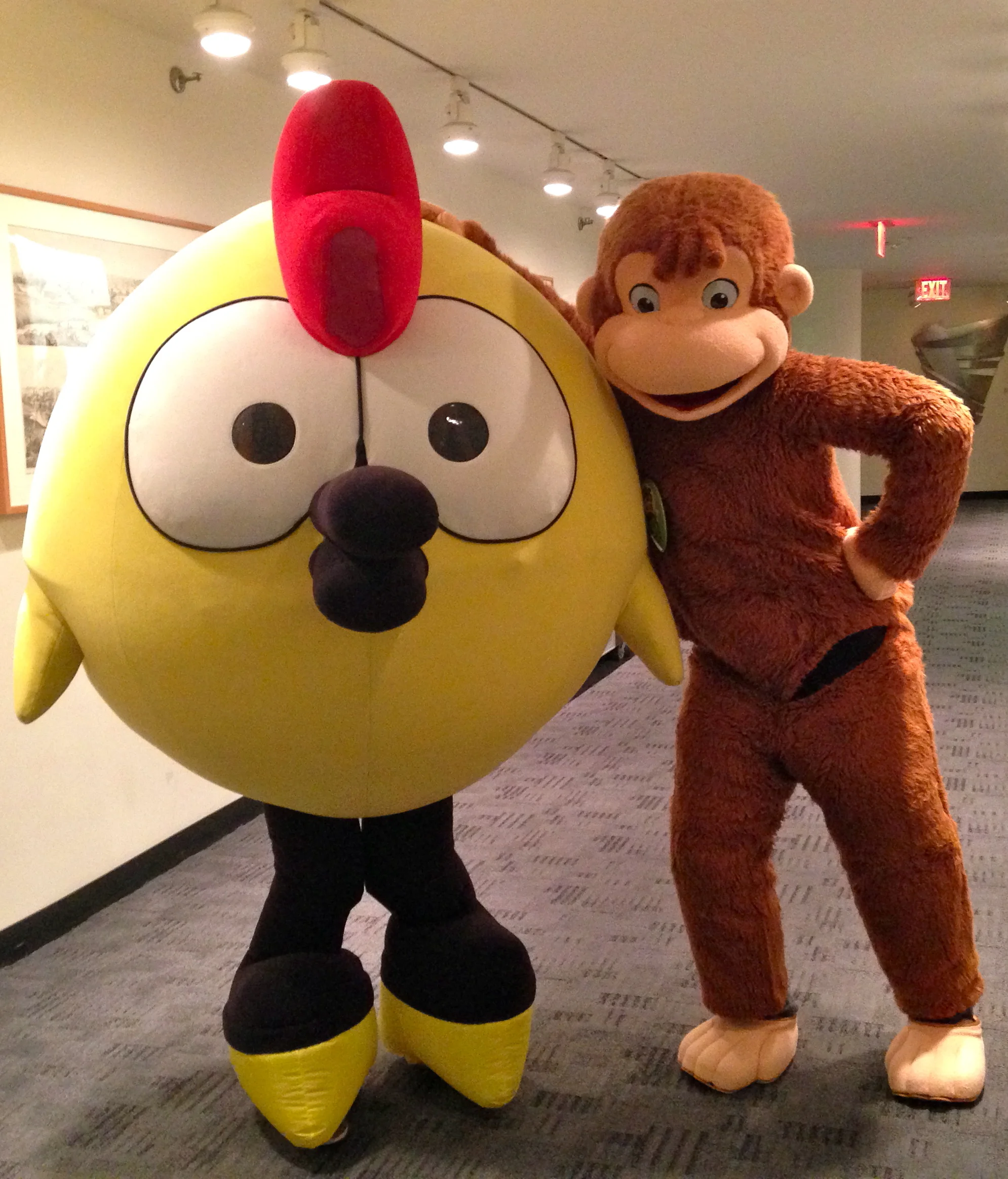Post written by marketing intern Deborah Frank.
On Wednesday, Oct. 23, I had the opportunity to help WGBH in overseeing the Race to the Top – Early Learning Challenge (RTT-ELC) Leadership Summit in Boston. The conference was organized to create dialogue about the RTT-ELC federal program among educators and administrators from museums, schools, government agencies, media companies, and nonprofits. The program is designed to close the achievement gap for high-needs children, and to ensure that all children enter kindergarten ready to succeed. Massachusetts received $50M over four years (2012-2015) to strengthen the state’s comprehensive early childhood education system.
Through my studies of Child Development and Communications and Media Studies at Tufts University, I have become extremely interested in the potential of educational media in classrooms and at home. I was first introduced to FableVision after Naomi Greenfield came to one of my classes last spring and presented on FableVision; I applied for a marketing internship the following year and have been spending my fall semester learning at their studio above the Boston Children's Museum.
I worked the RTT-ELC Leadership Summit as a “digital docent,” helping set up, usher, and answer participants' questions. The conference began with an engaging panel of specialists in different professional fields that contribute to early childhood education: Wendy Valentine from United Way of Mass Bay & Merrimack Valley, Anne Douglass from the UMass Boston Post Master's Certificate Program, Jeri Robinson from the Boston Children's Museum, Terry O'Neill from Lowell Public Schools, and Andy Churchill from Pioneer Valley Educational Readiness Center. Each panelist had a unique take on how parents, teachers, and community can foster learning to prepare a child for kindergarten and first grade. I was particularly struck by Wendy Valentine's comments about finding teaching moments in everyday life, and I was reminded of Our Tree, the animated fable FableVision created in collaboration with United Way.
My biggest contribution to the Summitwas the workshop session with Sonja Latimore and Anne Beatty from WGBH, who were instructing educators on how to use their new “Resources for Early Learning” website, which includes multi-media curricula for parents and educators. I passed out prizes to those who were able to maneuver the site quickly on iPads, and helped those that struggled by giving hints about which links to click. Even without previous knowledge of the design of the website, I was able to assist the older participants; navigating technology is intuitive for me, a perfect example of the generational divide.
Participants left the summit with the message that “what we feed our children’s minds is just as important as what we feed their bodies.” So much research about media effects on children focuses on the negative, but many educators and companies like FableVision are trying to take this ubiquitous technology and turn it into useful, enlightening, fun tools!





